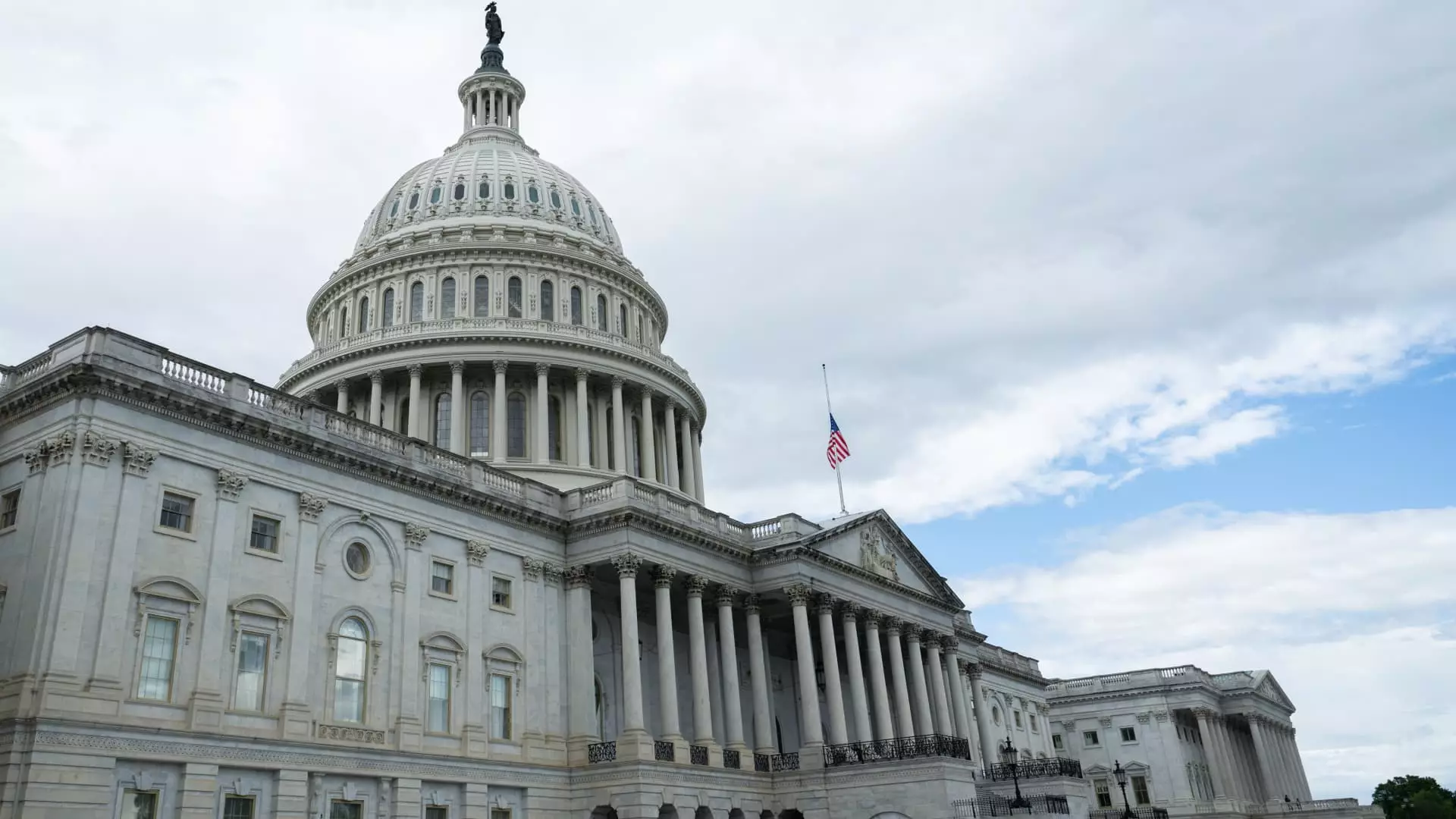The recent tax bill passed by House Republicans is notorious not just for its sweeping cuts but for the profound threat it poses to the national economy. Estimates project that this legislation could add an astonishing $3.1 to $3.8 trillion to the U.S. debt over the next decade, potentially pushing the national debt to a staggering $53 trillion. Rep. Thomas Massie, among the few Republicans expressing concern, aptly labeled the bill a “debt bomb ticking.” Such rhetoric, while perhaps sensational, captures the essence of a problem that has been gradually manifesting in the U.S. Budget deficits, exacerbated by massive tax cuts primarily benefiting the wealthy, raise serious questions about fiscal responsibility and long-term sustainability.
The narrative of tax cuts being a boon for economic growth is increasingly being debunked. Critics warn that while a short-term boost in consumer funding might seem appealing, the long-term implications could be catastrophic. The hope that slashing taxes will naturally incentivize growth and revenue generation is nothing more than a fallacy. Whatever short-term economic jolt might occur will be overshadowed by the staggering increase in debt, which will inevitably burden future generations.
Deficits and Household Finances
Many Americans may view growing national debt as a abstract concept disconnected from their daily lives. However, the stark reality is that national debt directly influences household finances. Economists are increasingly vocal about how a higher debt burden leads to elevated interest rates, making mortgages, car loans, and personal financing significantly more expensive. Mark Zandi, a seasoned economist, articulates a critical connection: soaring U.S. debt will result in higher interest rates that affect average consumers, essentially making critical investments like home buying even more challenging.
The truth is, the Republicans’ plan—which cuts taxes by $4 trillion, primarily benefiting wealthier households while stripping critical safety-net programs—disproportionately jeopardizes lower-income families. The savings of the affluent do not translate into broader economic growth that benefits all. Instead, these policies exacerbate existing inequalities and push working-class families further into financial insecurity.
The Economic Ripple Effect
More than merely a matter of fiscal policy, rising national debt triggers complex responses in financial markets. Treasury bonds, crucial for funding government operations, fluctuate with perceived risk associated with U.S. debt levels. As confidence erodes, investors may demand higher yields to offset their growing concerns over the country’s ability to meet its financial obligations. This scenario not only drives up the costs of government borrowing; it also trickles down to the average American, complicating both personal and business financing.
When bond yields rise, the price of existing bonds declines, resulting in diminished value for current bondholders. Thus, the financial ramifications reach far beyond a mere number on the Treasury balance sheet; they ripple throughout the economy, negatively impacting investment portfolios and overall consumer confidence.
The assertion made by some Republican lawmakers that trade policies will alleviate revenue shortfalls is fundamentally flawed. Tariffs introduce pricing uncertainty, and their ability, or lack thereof, to sustain tax revenue is suspect. Economists warn against relying on these unstable revenue sources while the underlying financial mismanagement only serves to augment the systemic risks we face today.
The Broader Economic Consequences
As the gravity of the situation sinks in, the implications for the U.S. economy become alarmingly clear. Even if Congress does not enact the proposed legislation, the debt-to-GDP ratio is on track to rise regardless, climbing to around 138%. If the fiscal irresponsibility from the House legislation is passed, it would essentially throw gasoline on a fire that is already raging.
The credibility of the U.S. sovereign credit rating hangs by a thread, recently downgraded by Moody’s due to escalating concerns surrounding the federal budget deficit. This decline not only taints the nation’s fiscal image but risks instigating higher borrowing costs internationally, as investor confidence continues to wane.
In a nutshell, the narrative championed by proponents of these tax reforms falls short of justifying the dire implications for American families and the economy. Their arguments for exceptional economic growth look increasingly hollow amidst a backdrop of financial chaos. If recent trends continue, U.S. consumers will be left grappling with the daunting realities—higher loans, rising costs, and an unacceptable debt burden—shouldering the consequences of policy decisions made by politicians distanced from the very people they claim to serve.

